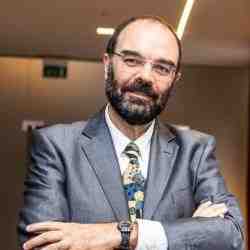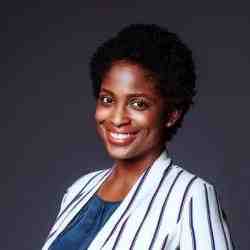Introduction
Scott Stiles aims to end debt bondage and forced labour of migrant workers throughout Asia, by making exploitative recruitment unprofitable
The New Idea
Scott Stiles is working to disrupt the migrant domestic worker recruitment system in Hong Kong and other migrant work industries across Asia. He does this by building and testing ethical recruitment agency and training center models. Scott is the Co-Founder and CEO of the Fair Employment Foundation which seeks to make exploitative recruitment unprofitable and realign the incentives of all stakeholders in the recruitment process. The market currently is based on a ‘worker-pays’ model in which migrant workers are charged exorbitant fees by middlemen––sub-agents, pre-migration training centers, employment agencies––in order to facilitate their employment and migration. Although employers are still charged for the recruitment service, workers are being charged the bulk of fees to facilitate recruitment. This model leaves workers inadequately prepared for migration and indebted to the agents who find them work.
The Fair Employment Model shifts to an ‘employer-pays’ model that eradicates fees to workers and re-aligns incentives at each link along the recruitment chain. Since 2014, Scott and his team has established an ethical employment agency in Hong Kong and a training center in Manila. He also works directly with employers through an educational initiative in corporate workspaces on ethical employment of migrant domestic workers. The success of these initiatives has provided an opportunity to influence relevant policies and legislation.
Scott believes that market solutions can end forced labour caused by exploitative recruitment. Within the first three years, Fair Employment Agency (FEA) was already one of Hong Kong’s top ten employment agencies in terms of placements of Filipino workers. The Fair Training Center (FTC) has demonstrated that its curriculum reduces the vulnerability of workers to early termination. Scott intends to make the Fair Employment Model a blueprint for ethical and sustainable models for employment agencies and training centers across Asia.
The Problem
There are approximately 380,000 migrant domestic workers in Hong Kong. Most are women from the Philippines and Indonesia who come to Hong Kong as sole breadwinners for their families back home. The city is heavily reliant on this work force, with one in eight Hong Kong households employing a migrant domestic worker. The Hong Kong government estimates a need to increase the migrant domestic workforce to 600,000 within 30 years to cope with a rapidly ageing population.
The cross-border movement of migrant domestic workers is brokered by multiple agents. Exploitation along this pathway is well documented. Employment agencies and training centers push workers into forced labour by charging huge fees while doing little to prepare them for their jobs. Hong Kong has a number of laws in place to protect migrant domestic workers, including a cap on placement fees at 10 percent of the first month’s salary, around US$55. However, enforcement is lacking, with the average recruitment fee charged to workers representing 25 times the legally permitted amount. The result is a broken market that fails both migrant workers and employers.
With this ‘worker-pays’ business model, employment agencies across Asia leave migrant workers fearful of leaving jobs until recruitment debts have been repaid. Workers start their jobs indebted to agencies and money lenders. Inadequate training leaves them ill-prepared for work, susceptible to early termination, and highly exposed to the cycle of forced labour.
This model also misaligns an agency’s interest with employers, as worker fees incentivize them to place workers based on their willingness to pay, rather than place the right person for the job. When a mismatched worker is terminated by an employer, the agency profits off replacement workers, and the worker is forced to pay more money for a new job.
The Strategy
Scott and his team identified forced labour as a result of a broken market, and saw an opportunity to develop business solutions that could make the market work better for workers and employers alike. If they could prove that ethical business meant better business, they would be able to increase demand for ethical employment agencies and effective training, encouraging others to follow the Fair model.
Since 2014, Fair has been building, testing and improving the Fair Employment Model - an ethical employment model that sets the market standard for migrant worker recruitment.
EMPLOYMENT AGENCIES
In 2014, Scott and his co-founders, David Bishop and Tammy Baltz, launched Fair Employment Agency (FEA). FEA is an ethical employment agency in which business interests are aligned with those of workers and employers. The non-profit agency places migrant domestic workers form the Philippines with employers in Hong Kong. While workers do not pay, employers pay a market rate for the service, allowing it to become a sustainable business.
Central to FEA’s success is high quality customer service and a sophisticated employer-worker matching process. In order to pay for university, Scott worked in customer service, and this experience has been applied at FEA. In Hong Kong, the domestic worker industry has a reputation for terrible service. By creating a great customer experience from the beginning, FEA received recommendations from their customers, generating positive momentum quickly. To set up employer-worker matches up for success, the team vets both employers and workers through interviews. They maintain a 95 percent satisfaction rate from employers and workers who use their service. Word of mouth is still by far their best marketing tool.
Out of the more than 1,300 domestic worker agencies in Hong Kong placing Filipino workers, FEA is one of the city’s largest. Within four years of launching, FEA placed over 3000 Filipino workers without charging them recruitment fees, helping workers avoid almost US$4.5 million in recruitment debt.
Employment agencies help move millions of workers from source to receiving countries. By proving the viability of an agency model that does not charge worker placement fees, Fair has created a blueprint model for ethical employment agencies across Asia to adopt.
TRAINING CENTERS
Workers who are terminated early from their jobs are more vulnerable to forced labour as they fall further into debt with new placement fees, or are forced to take up undesirable work to repay existing recruitment debt.
Training is the key intervention point to address these high early termination rates. Government requirements mandate all first-time migrant domestic workers undergo training in the Philippines. Despite laws that govern the quality of training, quality training is scarce. At best, workers are provided with poor training content that does not prepare them for their job. At worst, the training is highly exploitative with excessive fees that worsen worker debt levels.
Early on in Fair’s journey, Scott and the team was joined by Jennifer Meehan, who had previously been the CEO of the Grameen Foundation’s work in Asia. She became an advisor and continues to be a board director today. Jennifer spearheaded the second Fair solution, Fair Training Center (FTC), that sought to use training as a key intervention.
Fair Training Center (FTC) opened in November 2016. FTC is a non-profit, social business in the Philippines that provides affordable training to prepare women for life as a domestic worker overseas. Training content covers hard skills needed to be a professional domestic worker, such as cooking and housekeeping, and soft skills needed for successful migration, including financial education and communication). Trainees are encouraged to see themselves as professionals and take pride in their jobs. Part of this training also includes developing a long-term plan with family members, setting financial and migration goals.
FTC has been described as the “Gold Standard” for pre-migration training by the United Nation’s International Labour Organization. Graduates of Fair Training Center have a 100% passing rate in the government-required TESDA exam and a 10 percent early contract termination rate, compared to the industry average of around 30-45 percent, as well as decreased vulnerability to forced labour victimisation. By designing an affordable training model that better equips women for successful migration, Fair has created a blueprint program for training providers across the Philippines and Asia.
EMPLOYERS
Employers are one of the most influential stakeholder groups in Fair’s solutions. As employers choose the employment agency that processes a worker’s employment contract, their choice is key to determining whether a worker will pay recruitment fees or be adequately trained for their job. When employers are educated on forced labour issues, including recruitment debt and exploitative training, they can be market influencers. FEA demonstrates the benefits of employer education: Over half of the agency’s business is generated from employer referrals.
In late 2016, Scott’s team launched the Fair Hiring Pledge, through which companies make a public statement of support for the fair hiring and management of domestic workers. After companies sign the pledge, Fair runs information session in workspaces to educate employers on how to recruit and manage domestic workers ethically.
To date, the Fair Hiring Pledge has facilitated training for more than 1200 employers, providing information how to hire and manage domestic workers fairly. The Fair Hiring Pledge has been signed by 18 corporate signatories so far, including Macquarie Group, Barclays, Shangri-La, Thomson Reuters, and Credit Suisse.
Fair has also developed online resources for employers and workers to find balanced and credible answers to hiring and management of migrant domestic workers. The resource portal offers basic information from hiring to managing and termination, as well as providing timely updates for migrant domestic workers and their employers there are changes in labour or immigration policies that may affect them. The resource portal is viewed over 10,000 times every month. It also provides a unique marketing opportunity for Fair Employment Agency, boosting visibility with employers and building trust in the agency.
NEXT STEPS
Alongside growing FEA as a receiving country agency, Scott and the team are now looking to scale the Fair model across Asia. Fair is expanding the model to include elevating the standards for the exporting agency in a source country. They have identified this move to help accelerate their progress towards systemic change. It will allow rapid expansion of the Fair model into multiple countries and new migrant work industries.
The Philippines represents the best opportunity for this expansion. Fair has experience in this market, which is one of the top five migrant worker source countries in the world. As in Hong Kong, Philippines legislation also prohibits the majority of worker placement fees. Though fees are still routinely charged, the Philippines government has shown a desire and ability to improve the challenges faced by migrant workers.
Furthermore, all employment agencies that facilitate the migration of Filipino workers must partner with an exporting agency. As that exporting agency, Fair can provide this partnership on the condition that partner agencies follow their standards and use their technology platform. Using Fair’s technology platform will provide data that can be monitored, allowing them the opportunity to end partnerships with agencies operating unethically.
In the long-term, the vision is for Fair to control a full chain of solutions across sending and receiving countries,expanding to new migrant work industries across Asia and the Middle East.
Scott and the Fair team developed the Fair Employment Model with the goal of providing a blueprint for ethical, sustainable new business models for migrant worker employment agencies and training centers across Asia. The goal is to eliminate this form of forced labour at its root and the Fair model seeks to establish new standards of professionalism, accountability and transparency, as well as educating employers, workers and other stakeholders in migrant recruitment.
The Person
Scott was born and raised in the United States and studied business at Brigham Young University Hawaii. When he was 19, he served a two year mission for The Church of Jesus Christ of Latter-Day Saints, primarily in Mexican and Guatemalan migrant communities in Cincinnati, Ohio. Here, he saw the struggle of migrant workers, especially the pain caused by ‘coyotes’ who smuggle people across the border then used threats of violence to keep them in situations of debt bondage for years. During a summer internship in Hong Kong, Scott found out about the similar conditions of migrant domestic workers from his brother-in-law David Bishop, a professor at the University of Hong Kong.
Inspired by David and with a strong belief in potential of a market solution to the problem of domestic worker debt bondage, Scott turned down more lucrative career opportunities to move to Hong Kong after graduation. With co-founders, David, and Tammy, who worked as CPA at PriceWaterhouseCoopers and an SAP consultant in the US, Europe and Asia, Scott started Fair Employment Agency.
Fair Employment Agency launched in 2014. They recruited a local team and immediately began implementing a robust plan to influence the social and economic dynamics of this system. The core elements of the strategy were already developed. The next step was to demonstrate the case that this ethical model could beat the existing competition. FEA was incorporated as a non-profit to establish trust with various stakeholders, including government officials. However, in order to show the viability of the model and to promote replication across the market, it was also essential for the agency to cover its own costs and become financially sustainable quickly. Scott was able to raise funds from several foundations and donors interested ending to set up FEA. Now, after four years, FEA’s business fully covers its costs.
Scott has been tirelessly working to build Fair’s solutions, proving the Fair model and consistently refusing to compromise his ethical standards. Having seen FEA grow to stand on its own in Hong Kong, he moved with his young family now to Manila, in order to build a sending country recruitment agency that will complete Fair’s end-to-end solution. Scott is optimistic that the problem of forced labor in Hong Kong, and eventually across Asia, will be solved in the next decade.

 Tile image
Tile image


